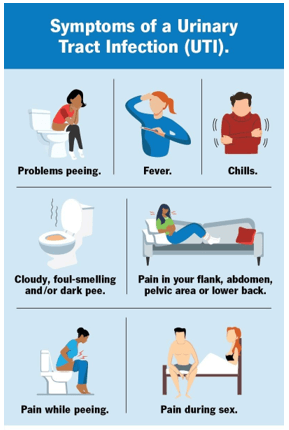A nurse is assisting with the care of a client.
Laboratory Results
Abdominal ultrasound: mass present in small intestine proximal to ileocecal valve. Size of mass is 6 cm x 7 cm (2.4 in x 2.8 in).
Select the 4 responsibilities the nurse has in relation to the client's advance directives.
Inform the client that an advance directive discontinues further care.
Initiate a power of atorney for health care document.
Document that the provider discussed do-not-resuscitate status with the client.
Provide the client with written information about advance directives.
Communicate advance directives status via the medical record and shift report.
Instruct the client that an advance directive is a legal document and must be honored by care providers.
Correct Answer : C,D,E,F
c, d, e, and f.
a. An advance directive does not automatically discontinue further care. It simply provides guidance to healthcare providers on the client's wishes for medical treatment. It is important for the nurse to explain this to the client and ensure that they understand the purpose of an advance directive.
b. While nurses can provide information and support the client in understanding the importance of having a power of attorney for healthcare, initiating such documents is typically not within the scope of nursing practice. This task usually requires legal guidance and formalities that go beyond nursing responsibilities.
c. Accurate documentation is crucial in healthcare. If a provider discusses do-not-resuscitate (DNR) status with a client, it must be documented in the client's medical record to ensure that all healthcare team members are aware of the client’s wishes.
d. Provide the client with writen information about advance directives: It is important for the nurse to provide the client with writen information about advance directives, including their rights and options for creating an advance directive. This information should be provided in a clear and understandable manner.
e. Communicate advance directives status via the medical record and shift report: The nurse should communicate the client's advance directives status to other members of the healthcare team via the medical record and shift report. This ensures that everyone involved in the client's care is aware of the client's wishes and can provide care that is consistent with those wishes.
f. Instruct the client that an advance directive is a legal document and must be honored by care providers: The nurse should instruct the client that an advance directive is a legal document that must be honored by care providers. This ensures that the client understands the importance of their advance directive and can advocate for their wishes if necessary.


Nursing Test Bank
Naxlex Comprehensive Predictor Exams
Related Questions
Correct Answer is B
Explanation
All of the listed actions can be part of evaluating the effectiveness of a performance improvement program, but identifying data collection methods is the most specific to evaluating the outcomes of the program.
Therefore, the nurse should identify data collection methods to evaluate the effectiveness of the program. Reviewing the facility's policy and procedure manual, defining the problem, and performing chart audits are all important steps in the performance improvement process, but they do not specifically address the evaluation of the program's effectiveness.
Correct Answer is ["A","D","E","F"]
Explanation
To decrease the risks for a urinary tract infection for this client, the nurse should take several actions. The nurse should encourage the client to drink 3,000 mL of fluid daily to help flush bacteria out of the urinary tract¹. The nurse should also empty the drainage bag when it is half-full to prevent bacterial growth¹.
Additionally, the nurse should review the need for the indwelling urinary catheter daily and use soap and water to provide perineal care¹.

Whether you are a student looking to ace your exams or a practicing nurse seeking to enhance your expertise , our nursing education contents will empower you with the confidence and competence to make a difference in the lives of patients and become a respected leader in the healthcare field.
Visit Naxlex, invest in your future and unlock endless possibilities with our unparalleled nursing education contents today
Report Wrong Answer on the Current Question
Do you disagree with the answer? If yes, what is your expected answer? Explain.
Kindly be descriptive with the issue you are facing.
